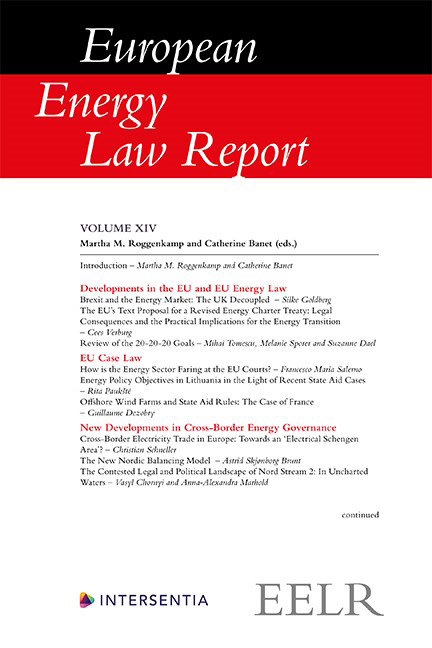Chapter IX - The Contested Legal and Political Landscape of Nord Stream 2: In Uncharted Waters
Published online by Cambridge University Press: 26 May 2022
Summary
INTRODUCTION
Energy is often at the heart of geopolitical struggle. But even when measured against the standards of the industry, it is hard to find a project as politically charged and controversial as the Nord Stream 2 (NS2) gas pipeline running from Russia to Germany via the Baltic Sea. In this chapter, we unpack several aspects concerning the project and shed light on its crucial legal and political dimensions. We start by providing a brief description of the historical background of the NS2 project. We then turn to its relevant EU and international legal aspects, after which we discuss the recent instances of political and legal contestation surrounding this project, including the US sanctions legislation on NS2, as well as Investor-State Arbitration under the Energy Charter Treaty (ECT) and World Trade Organization (WTO) dispute settlement proceedings. The final section will provide a conclusion based on the insights of our study.
HISTORICAL AND POLITICAL BACKGROUND TO NORD STREAM 2
The Nord Stream system of offshore natural gas pipelines was a contentious project from the moment of its conception in the mid-2000s. Nord Stream 1 (NS1) – the currently existing pipeline – was viewed by many as a way of circumventing ‘difficult’ gas transit countries, such as Ukraine, in delivering gas supplies to the EU. Russian gas transit via Ukraine was cut offfor some periods of time at least twice, in 2006 and 2009, due to disagreements between the countries on the price for natural gas. One of the criticisms of NS1 was that the EU would become dependent on Russian gas, thereby jeopardizing its energy security. It also exposed the tensions amongst EU Member States and their diverging interests and stances towards Russia as a major gas supplier to Europe. While Germany was generally a proponent of importing Russian gas, its Eastern neighbours Poland and the Baltic States, for instance, were opposed to Russian dominance on the EU internal energy market. Nevertheless, NS1 became operational in 2011 and in the same year, Nord Stream AG started to explore the opportunities to lay a second set of pipelines, NS2, to increase the capacity of gas imports.
- Type
- Chapter
- Information
- European Energy Law Report , pp. 171 - 194Publisher: IntersentiaPrint publication year: 2021



